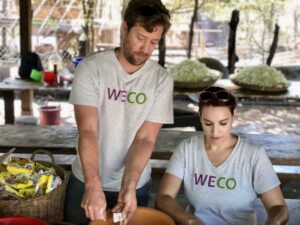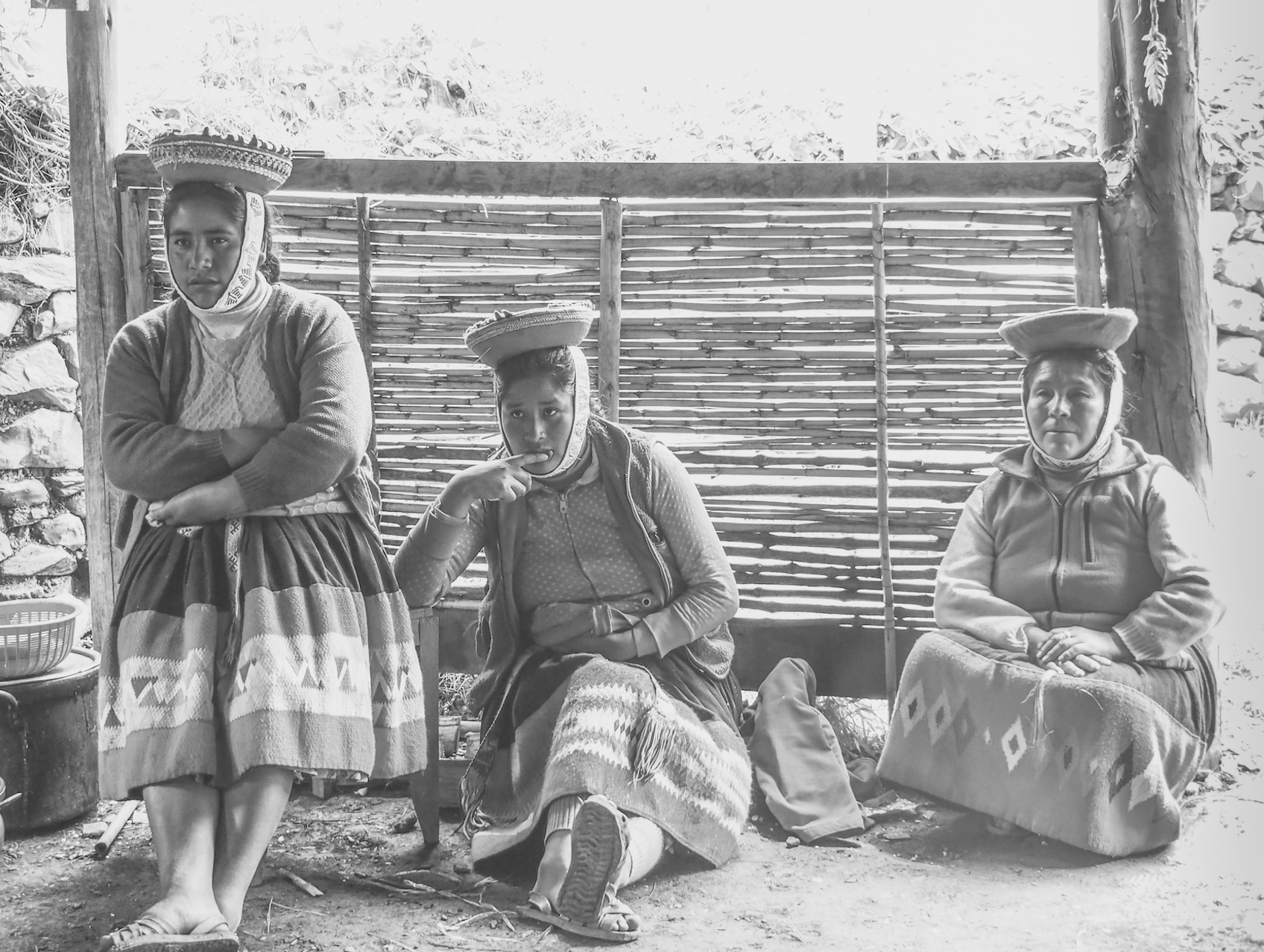Feminism is the Future
Why Men Should Be Feminists and Allies in the Fight for Gender Equality
In our quest for a more equitable, just, and sustainable future, the role of feminism is key. While the movement has historically been associated with women’s struggles for equality, the fight against gender discrimination benefits everyone, regardless of gender. There are myriad reasons why men should actively embrace feminism and become staunch allies in the pursuit for gender equality.
At its core, feminism advocates for the rights and opportunities of all genders to be equal. It challenges social norms that perpetuate gender-based discrimination and strives to dismantle patriarchal structures that continue to marginalize women. For men to be true allies to women, it’s crucial for us to recognize that feminism is not about diminishing men or their experiences, but rather creating a more inclusive and fairer society for everyone. Harmful narratives around scarcity and competition will threaten people who fear the sacrifice of their power or status. However, when we nurture social cohesion through cultures of collaboration, many of our most pressing global challenges will be more easily solved—and future generations will thank us!
“When we nurture social cohesion through cultures of collaboration, many of our most pressing global challenges will be more easily solved.”
Across global communities, people face unique challenges based on the intersection of various identities, including race, class, and sexual orientation. While less common, men can also experience discrimination and disadvantage, and feminism provides a platform for addressing these issues. Although other equal rights movements should never be diminished, the fight for gender equality affects more people, will have the broadest impact, and should therefore be prioritized. Progress here will pave the way for progress in other marginalized communities.
Traditional gender roles have confined both men and women to narrowly defined expectations. Men are often pressured to conform to stereotypes that emphasize strength, stoicism, and dominance. Feminism seeks to undo these harmful stereotypes, allowing men the freedom to express a broader range of emotions, reject toxic masculinity, and expand the scope of their opportunities so that they may live fuller lives. There’s a clear role that testosterone and estrogen play in shaping political, economic, and social dynamics. Testosterone-driven traits such as aggression and irrational decision-making have historically dominated in these dimensions. Yet a more conventional feminine approach—characterized by traits like empathy and collaboration—is crucial for effective leadership. In my professional experience, and as a collaborative person who prefers constructive and supportive relationships, women leaders have typically been more skilled at driving a shared sense of purpose through their openness to ideas and compassion.
Feminism encourages the cultivation of respectful and egalitarian relationships. By rejecting power imbalances based on gender, men can engage in healthier partnerships that thrive on mutual respect, shared responsibilities, and open communication. Embracing feminism allows men to challenge outdated notions of dominance and control, and foster relationships built on equity and understanding. One of feminism’s central tenets is eliminating gender-based violence, which necessitates men standing against violence in its many forms and challenging toxic masculinity. By actively speaking out against gender-based violence, supporting survivors, and educating others on consent and respect, men contribute to fostering a safer and more empathetic society.

Volunteering with the PLF in Cambodia, 2023
As I reflect on my personal journey with feminism, I realize how fortunate I am to have been raised in an environment of respect, surrounded by strong, independent-minded women and positive male role models. There’s no doubt I was unaware of the patriarchy’s influence all around me as a younger person. While I felt the unfairness exposed by the struggle for women’s rights, I didn’t see a role for myself. I now see how my education and experience made me a feminist from the start. Sharpening my focus on issues I’ve had the privilege to ignore, the injustice of ‘traditional values’ is pervasive. It’s unacceptable how women around the world are expected to cook, clean, and care for children and the elderly without pay, or how they’ve been historically denied property rights, loans, and reproductive rights, to name just a few examples.
Enduring change requires incremental steps, and there are inspiring examples of how this is unfolding in tangible ways. In low-income countries, the empowerment of women has accelerated progress in health, education, addressing climate change, peacebuilding initiatives, and economic stability. Recently, I’ve volunteered for gender equity projects in Peru, Cambodia, and Costa Rica with the Women’s Empowerment Coalition (WECO)—a US-based nonprofit that funds and supports high-impact initiatives focused on women and girls. Through these volunteer trips, I’ve developed a deeper understanding of the power and potential of allyship.
During a two-week WECO volunteer project in the Peruvian highlands, I saw how empowering women entrepreneurs stimulates local economies and broadly impacts their communities. Our volunteer group lived with host families and worked to build a multi-use textile center for local women weavers. Like in many global communities, Quechua women traditionally invest their income in community development through their support of local education, food from local markets, healthcare, and the wellbeing of their children. Whereas men tend to invest a lower proportion of their income on family and community, women’s deeper investments create a multiplier effect that reinforces community resilience.
In Cambodia, WECO is supporting local organizations that provide access to education for rural girls and boys, helping to dismantle traditional pathways that separate children by gender from an early age. While it may seem unremarkable through the eyes of western visitors, in these geographies, the implications of empowered young women with new opportunities has the potential to break cycles of poverty and resource-strained environments. WECO does not discriminate against boys in the direction of its funding precisely because the solution requires boys to grow into empathetic and supportive allies.
WECO’s Costa Rica project highlights the potential of women-led cooperatives to amplify positive change for other women. In the mountains outside San José, a cooperative of women coffee farmers is building a vertically integrated business to retain a profit margin that has eluded them at every turn when they were in control of only their harvest. They tirelessly worked to fund the construction of a micromill and created market linkages to put them directly in touch with buyers. This cooperative of women is creating jobs for other women in their community, generating a positive feedback loop that builds confidence, agency, and independence. These are strong, powerful, and deeply caring women!

Lars and Margarita learning about coffee production in Costa Rica, 2023
The future we need is undeniably feminist, and the participation of men is vital to help pave the way for a world where our differences make us collectively stronger and more resilient. The ripple effect of increased participation in feminist initiatives from male allies would be profound, even widening the circle of benefit to include our relationship with natural systems. A new social ethic is needed to address our deepening and interconnected ecological, social, and economic crises. Daniel Christian Wahl—a thought leader I greatly admire and the author of Designing Regenerative Cultures—summarizes the solution well: “Only by changing our cultural narrative can we transform our vision of the future and heal our relationship with life as a whole.”
“Only by changing our cultural narrative can we transform our vision of the future and heal our relationship with life as a whole.”
Feminism can bring this vision into reality by advocating for a proactive new ethic. To me, feminism is the steadfast commitment to respect, fairness, and equity. Although it may begin with gender equality, its impacts extend equity to a spectrum of identities, communities, and species, all of which contribute to a regenerative culture and sustainable future. Men, wherever you are on your journey as an ally, reconsider what feminism means to you.
- Men at work in Huilloc, Peru
- Hard at work in Huilloc, Peru
- Mixing concrete in Huilloc, Peru
- Making lunch with students in Koh Ker, Cambodia
- Lars and Lori with the PLF
- Harvesting coffee in Costa Rica






